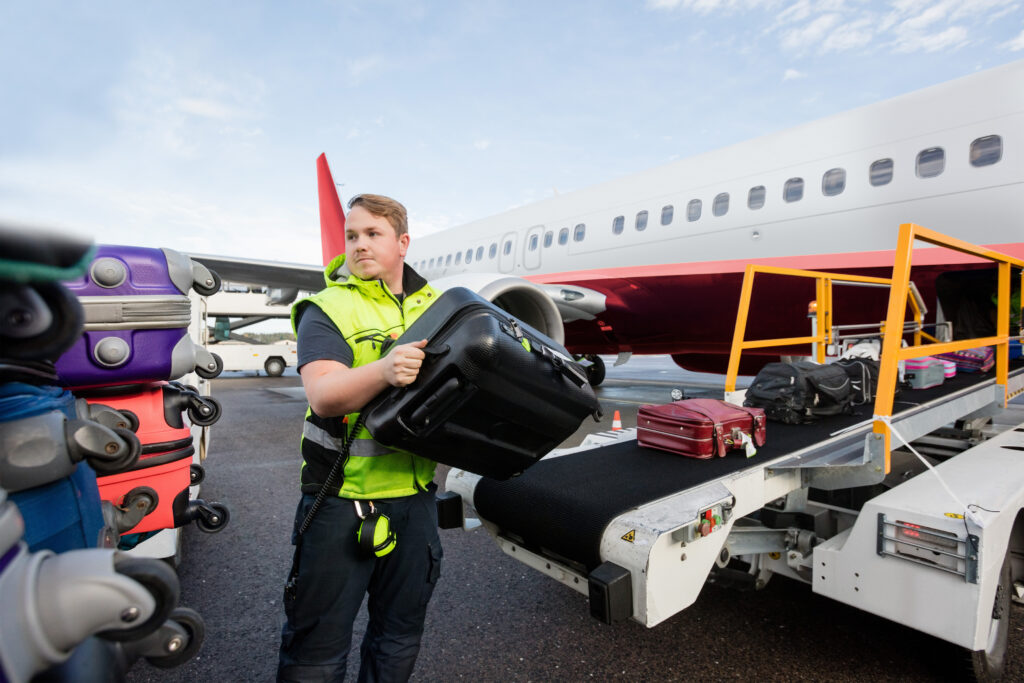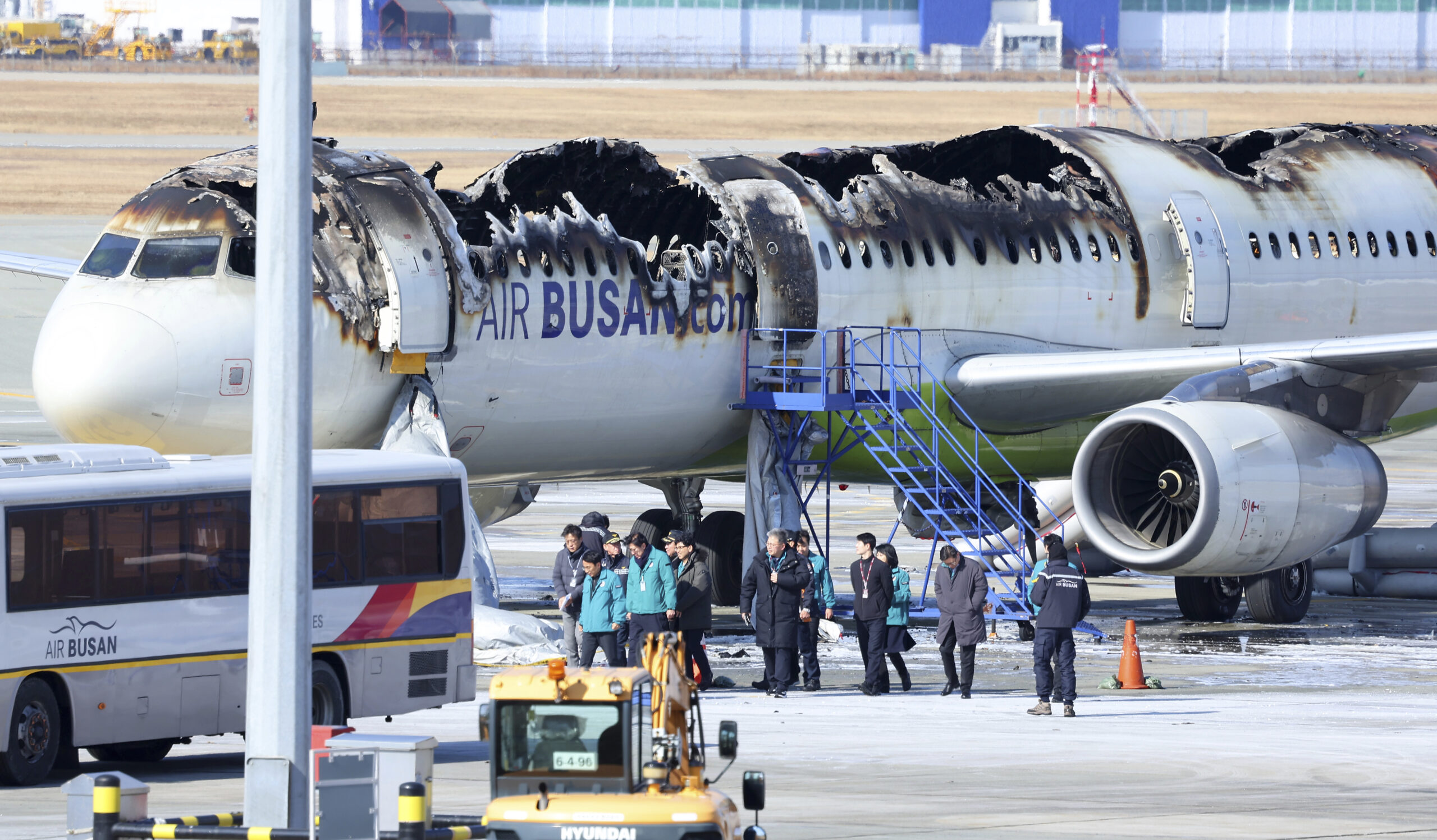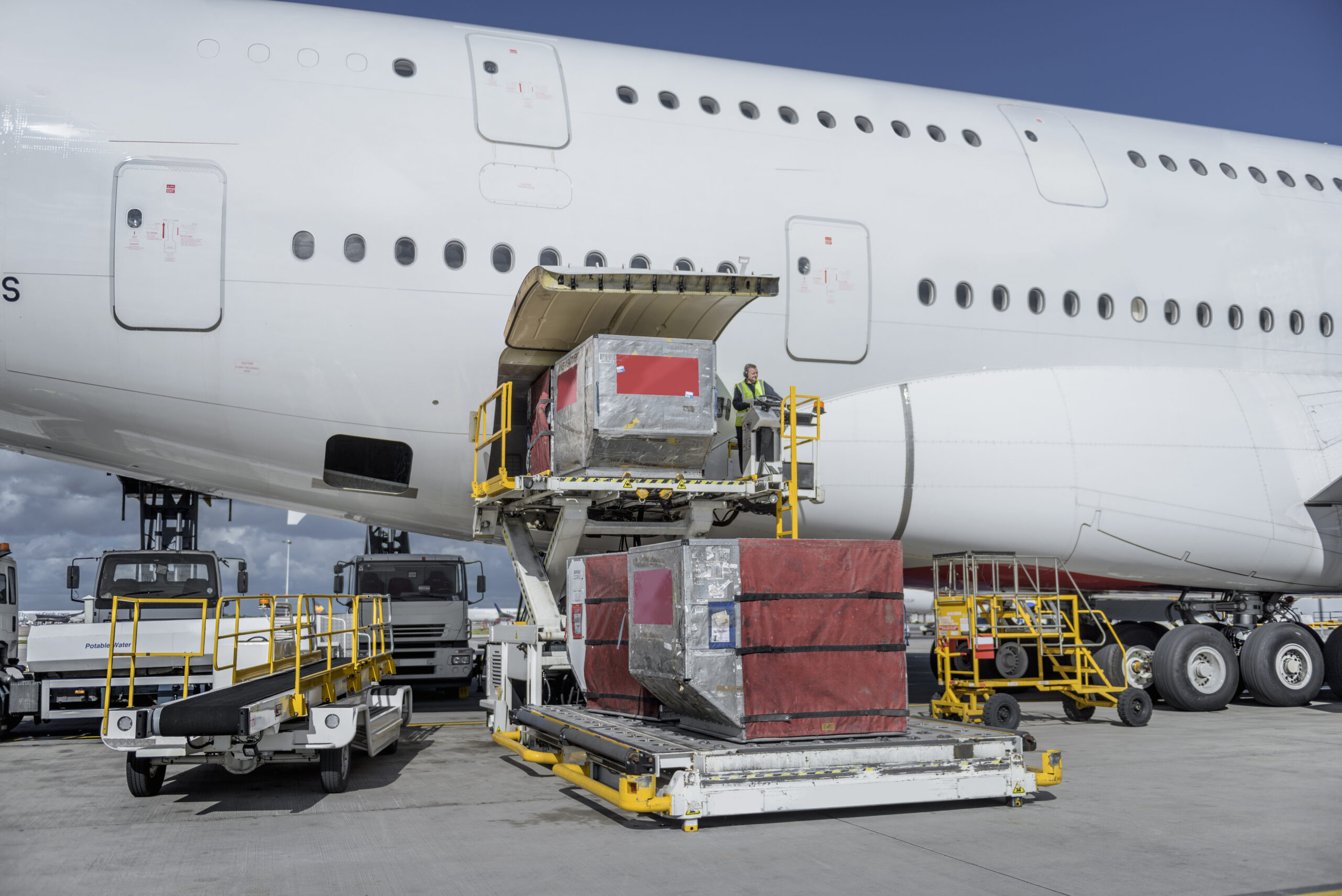
Aviation Safety
We’re working to help keep you safe in the sky through safety standards for devices with lithium-ion batteries, as well as battery fire containment products, to mitigate hazards if they arise.
What is the Risk to You?
Rechargeable devices, such as phones and portable power packs, are essential for air travel experience but pose serious safety risks to passengers, crew, and aircraft. If damaged, improperly charged, or poorly manufactured, the lithium-ion batteries in these devices can overheat and enter thermal runaway — a dangerous state that can lead to fire or explosion. Proper education and safety standards can help prevent these incidents.
By the Numbers
Hover over each stat below to learn about the impact proper aviation safety measures can have in preventing potentially harmful incidents.
Keep reading to explore examples of the power of prevention from people just like you.
Standards in Action
A safety standard is like an instruction manual put together by experts to guide the testing of products, services, and systems to make them safer for you.
Our standards help keep you safe in the air by reducing and mitigating lithium-ion battery incidents.
A Look at Our Long History in Aviation Safety
In the early 20th century, as people were first taking flight, our organization helped to advance the safe development of this technology by working with the National Aircraft Underwriters Association to inspect planes, establish manufacturing standards, and develop the first civilian aircraft rules in the United States.
Today, over a century later, ULSE continues this legacy by developing comprehensive standards for everything from ground equipment to commercial drones, and the commercial devices passengers bring on board planes — so that when pilots and passengers step onto an aircraft, their safety is supported by rigorous requirements.

Aviation Safety Resources
Education is a critical step in making aviation safer for you. Explore these resources to equip yourself with the knowledge you need to travel more safely.
-

Raising Global Awareness of Lithium-Ion Battery Safety in Air Travel
Discover how lithium-ion battery fires on aircraft highlight global gaps in awareness and regulation—and why coordinated international action is critical…
-

Banning Devices on Aircraft — A Solution or a Bandage for Safe Travel?
Discover why lithium-ion battery bans on planes fall short—and what real solutions can keep air travel safe.
-

Avoiding Fires at 30,000 Feet: What Cabin Crew Need Passengers to Know
Learn how improved passenger awareness of lithium-ion battery risks can help prevent in-flight fires at 30,000 feet.
Frequently Asked Questions
Education can be one of our greatest assets in fighting aviation safety risks. Continue reading to find common questions about aviation safety and learn how to mitigate your risk.

most commonly asked
How can I safely pack lithium-ion batteries for my flight?
Inspect your rechargeable devices before your flight and keep them nearby at all times. Powering off your devices during flight may also lower your risk. Learn more about flying with lithium ion batteries safely here.
How common are lithium-ion battery incidents on planes?
There are approximately two thermal runaway incidents reported per week out of roughly 180,000 weekly flights in U.S. airspace. While incidents have increased 28% over the past five years (2019–2023), they remain relatively rare.
Which devices cause the most incidents?
In 2023, e-cigarettes were responsible for 35% of reported incidents on passenger flights, followed by power banks at 16%. Together, these two types of devices account for over half of all thermal runaway incidents.
Can I pack my laptop, phone, or tablet in checked luggage?
No, devices containing lithium-ion batteries should not be packed in checked luggage. Our research shows that devices that enter thermal runaway in checked baggage cannot be accessed by crew while in-flight, and fires may not be detected as quickly in the cargo hold as they would be in the cabin.
What’s the safest way to transport my devices during a flight?
Keep devices in the cabin where they can be monitored. Approximately 87% of incidents occur on aircraft, with about 60% happening near passenger seats where they can be quickly detected and addressed. Keep devices in sight and easily accessible rather than in overhead bins.
Is it safe to charge my devices during flight?
According to TRIP data, only 6% of incidents involved charging using aircraft USB or AC outlets. While charging isn’t necessarily a major risk factor, it’s still important to monitor devices while charging and use certified charging accessories.
Spotlight
Aviation Safety Standards
Safety standards have the power to save lives. Explore UL standards that help mitigate the risk of aviation safety incidents.
Our catalog includes more than 1,700 safety standards and documents that are regularly updated and added to. Click below to keep exploring how our standards are making the world safer for you.
Take Action
Safety standards help make the world safer for people like you, and you can help. Take action now to support the adoption of aviation safety standards.
Get Involved
The best standards are made possible by diverse voices and deep collaboration. Be part of the process by helping inform the next generation of standards.

Technical Committees
Each TC is a diverse group of experts representing a broad range of perspectives and interests, including consumers, manufacturers, regulators, supply chain professionals, and more.
As a TC member, you will review proposals for new or revised standards and work collaboratively to achieve consensus through balloting in our transparent process.

Stakeholders
Stakeholders can submit, review, and comment on proposals for new standards or revisions to existing standards. While these individuals cannot vote, the TC considers their input during the standards voting process. Since standards affect everyone, all are welcome to participate as stakeholders. Register online through our Collaborative Standards Development System, CSDS.
